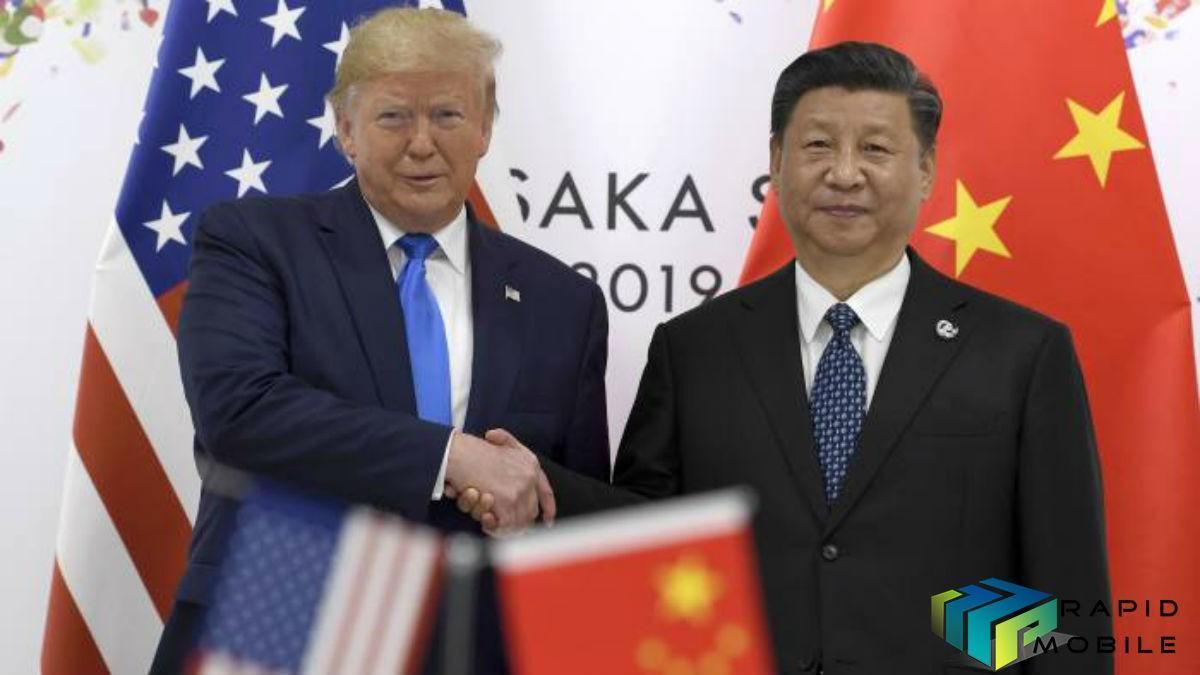Following talks with President Xi Jinping. President Trump said Saturday he will allow U.S. companies to sell products to Huawei, offering a concession to China.
“U.S. companies can sell their equipment to Huawei,” Trump said at a news conference in Osaka, Japan, the site of the Group of 20 (G20) summit.
“We’re talking about equipment where there’s no great national security problem with it.”
Earlier this year, Mr Trump effectively banned US companies from selling products to Huawei by putting the Chinese firm on the so-called Entity List — a move that forces US firms to apply for licenses to sell software or equipment to Huawei.
For now, Huawei is still on the so called “Entity List” of companies that the U.S. Department of Commerce bars from dealing with American entities. A formal decision has not been made yet, and the discussions between U.S. and China are ongoing. Trump also said that Huawei is still a security risk in the U.S. government’s view.
“Huawei is very much in play in terms of our country and in terms of intelligence and the intelligence community — we know a lot about Huawei — but I don’t want to mention that right now. I just think it’s inappropriate. We’re not making it other than what I told you… We’re going to save that for later.”
Asked whether he was planning on removing Huawei from the Entity List, Mr Trump said that was an option that was under consideration. “We’re talking about that. We have a meeting on that tomorrow,” Mr Trump said.
For owners of Huawei devices, the news will be a welcome relief. While Huawei promised it would bring Android Q to several high-end devices, the situation was anything but clear.
It’s unclear whether that extends to the 5G network technology that Huawei is developing, it most certainly applies to Google and Android. Under the terms of the previous ban, Google was barred from selling an Android license to Huawei, meaning its phones could use the base open-source code, but would not have access to the all-important Play Store and Google apps.
While Trump didn’t specifically mention Google, Qualcomm, or Intel in the announcement, he made a point of calling out the “complex and highly scientific” products created by U.S. tech companies:
“What we’ve done in Silicon Valley is incredible and nobody has been able to compete with it, and I’ve agreed to allow them to continue to sell that product (to Huawei).”
While the ban hadn’t technically taken effect due to a 90-day reprieve, it was already affecting the development of future products. Huawei had confirmed that it was working on its own OS and was reportedly reaching out to other China brands such as Oppo, Vivo, and Xiaomi as partners.
Now that Google can continue to sell its Android license to Huawei, the company will need to decide whether to continue pursuing the project or stick with its EMUI OS.
The efforts to curtail the company’s ability to do business in the U.S. were implemented as part of a larger dispute with Beijing over trade imbalances and intellectual property theft.
Trump said that he and Xi discussed Huawei as part of their talks on a range of subjects.
“I said that’s OK, that we will keep selling that product, these are American companies that make these products. That’s very complex, by the way,” Trump said.
“I’ve agreed to allow them to continue to sell that product so that American companies will continue.”
The president added he believed he and Xi are “getting a little bit closer” to a broader trade deal.




